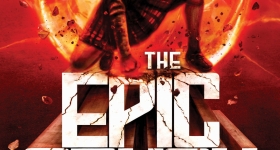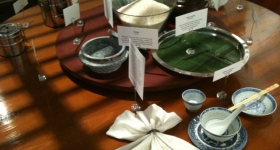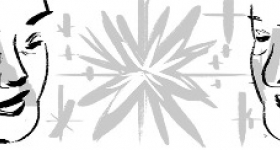Dear Wesley Yang,
Props to you on your New York magazine cover story “Paper Tigers: What happens to all the Asian-American overachievers when the test-taking ends?” which has been re-Tweeted and linked on Facebook by every Asian American with Internet access in the past 24 hours. In its online version, the article has already elicited 180 comments and counting. Many of the comments are part of a fairly vigorous debate between those readers who found your article to be insightful, those who found it to be self-indulgent, and those who hold every other possible opinion that lies between those two poles. I tell ya, there’s something about Asian Pacific Heritage Month that just gets everyone so riled up.
Internally, we at Hyphen had a similar debate. Our staff is diverse in background and opinion -- one of our few across-the-board commonalities being reliance on the never-ending email thread -- which is reflective of our mission to explore and feature the Asian America that exists outside of Model Minority mythology.
The Model Minority Myth may have been based on generalizations of "Asian culture," but it has been perpetuated in order to justify tacitly the racial limitations in the workplace and classroom you aptly speak of in your article. Asian American employees are never quite “management material” and Asian American students paradoxically need to out-Asian themselves academically in order to get into elite universities, compared to whites.
Many readers identified with your middle finger to that dogged pursuit of achievement which has left many unfulfilled socially, romantically or economically, and I wanted to join in, too. But I couldn't find a foothold in an article devoted almost solely to overachievers, to the most visible archetype in Asian America. Based on personal experience, I can't relate to how hard it is be an Asian American engineer, Stuyvestant alum, Williams grad, or IBM employee. Even the men learning to smile and modulate their vocal inflection for seduction purposes come from a point of privilege in order to pay for training by the Asian Playboy.
The concept of invisibility in Asian America means something very different to me. I think of working class and poor Asian Americans; refugees from Asian countries; undocumented Asian Americans; LGBTQ Asian Americans; Muslim Asian Americans; and the many other communities whose invisibility won’t land them a cover on a national magazine. Yes, the Bamboo ceiling sucks for an engineer who will never make it to management level. But it probably sucks more for the Asian immigrant who has to dust that Bamboo ceiling after emptying out the wastebaskets and mopping the floors. While earning no more than $12,000 a year may be a badge of Model Minority defiance for some Asian Americans, it's a stark economic reality for others.
This is not a guilt trip nor is it an attempt to invalidate your feelings on the matter or the feelings of your interviewees. This article is your story, your perspective on Asian American experience and you are not beholden to anyone to be representative of a racial group, especially one this diverse. My fellow blogger Michael put it best when he suggested taking a step back, to think of the audience New York magazine is trying to reach. Not every readership is familiar with Asian American history or activism and what may seem like retreading of old ground to one community may be new territory to another. Any expression of Asian American identity is always welcome, in my opinion -- particularly on a mainstream level. It's not expected that every Asian American person will agree with the sentiments of one. How could we? We're all so different. We are tigers of many stripes, Paper, Mother, or otherwise.
But not everyone knows that, and many already mistakenly think the Paper Tiger experience is the Asian American experience. And that's really the only reason for this post. It is not to overly critique your highly personal yet thoroughly reported article, but to supplement it with information that this particular Asian American thinks is significant. I will be just one of many in the coming days. It'll be like Chua Redux, only even more hyped because your use of F-bombs and Asian Playboy references! The opinions will fly until we've temporarily fatigued of the topic and 'paper tigers' will probably join the pop cultural lexicon. You challenged us to make defiant noise and it seems like we've already accepted.
Well played, sir.
Sincerely,
Sylvie
* * *
A later Hyphen response to Yang here.










Comments